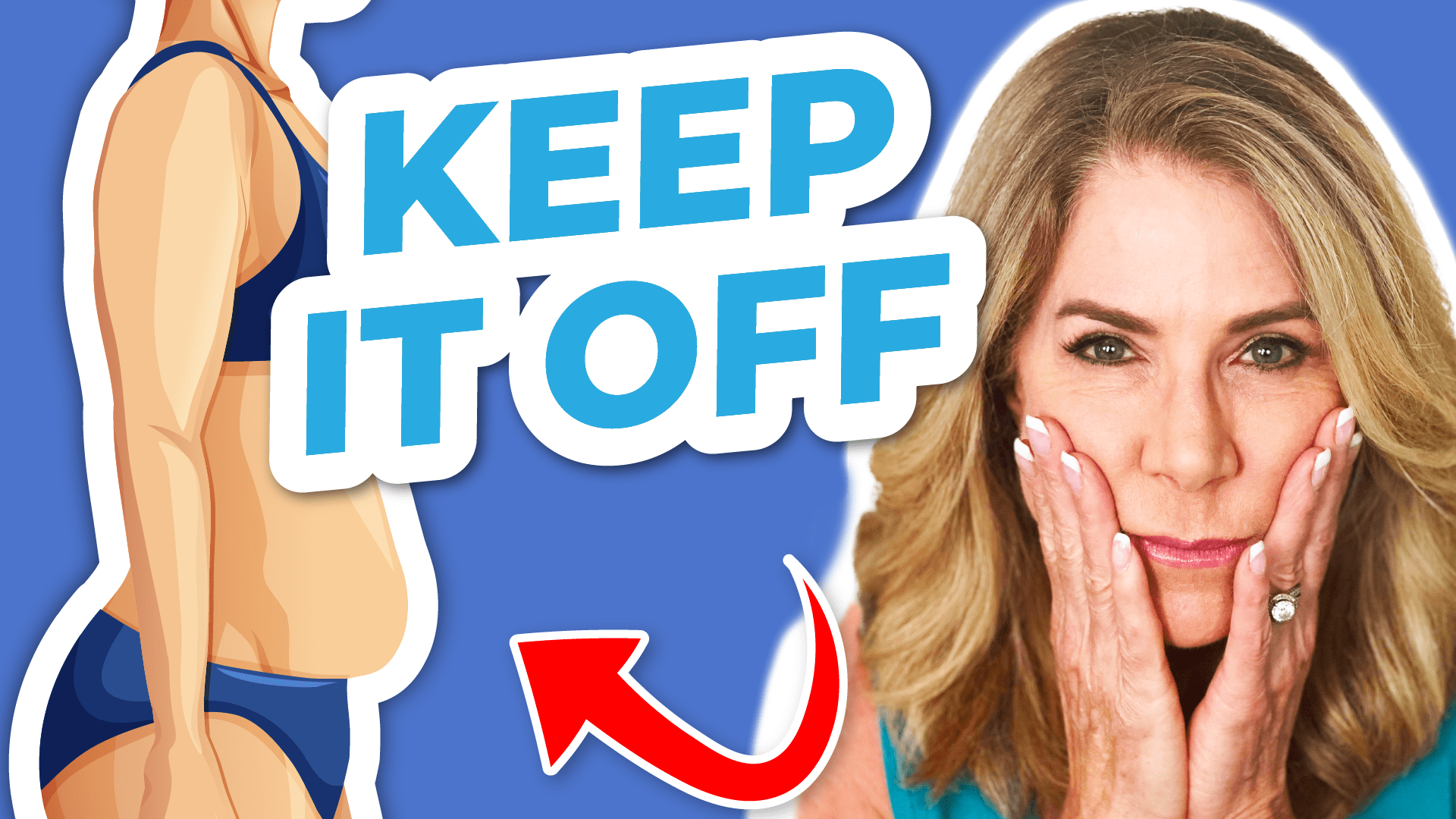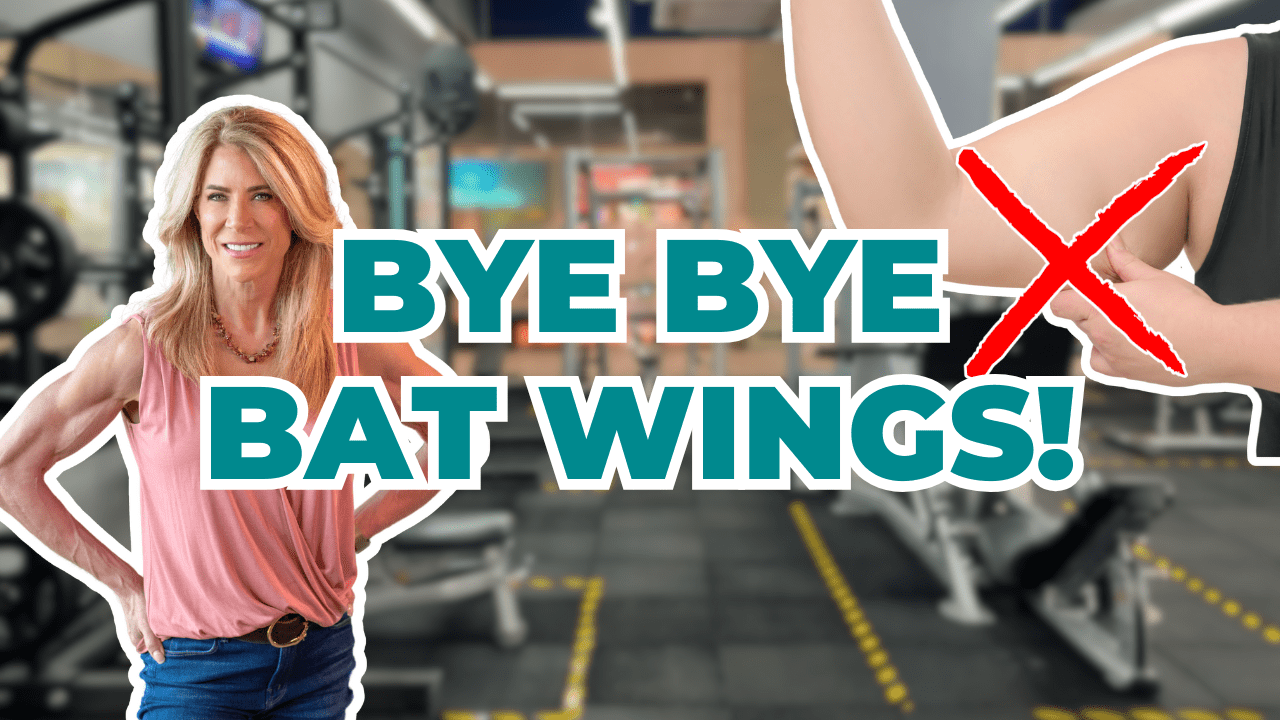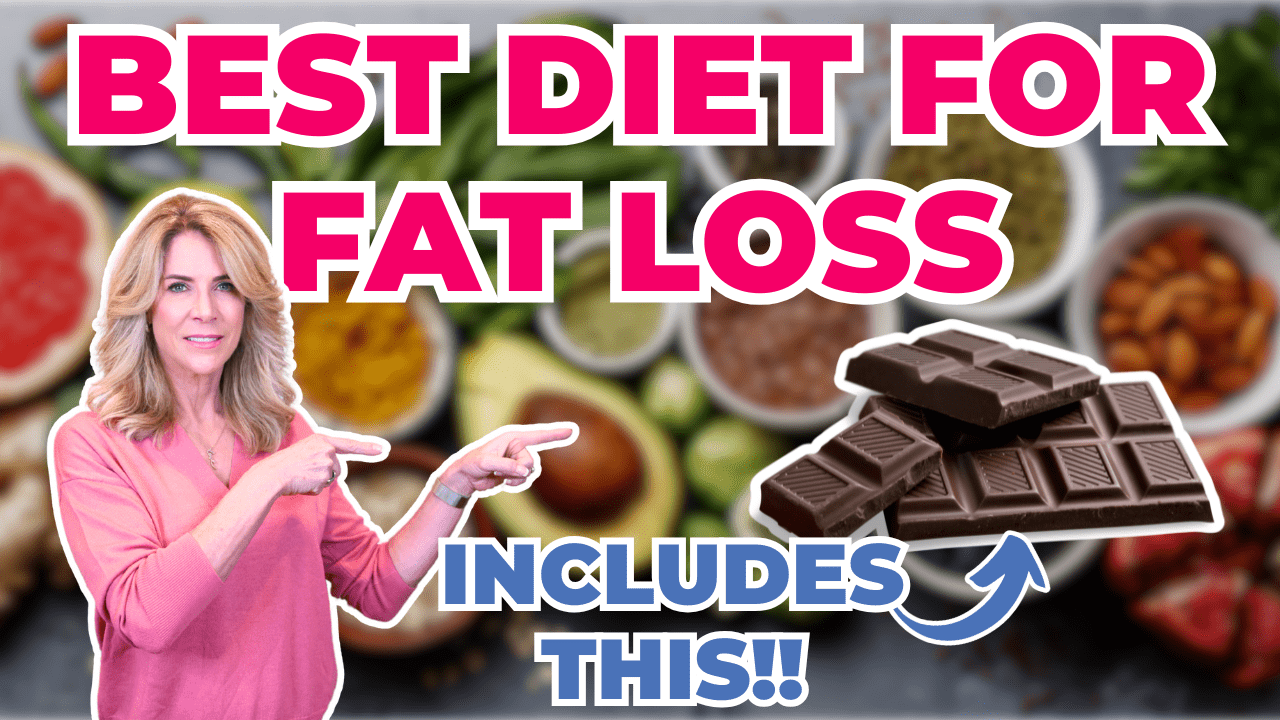Overcoming the Challenge of Maintaining Weight Loss
Are you ready to tackle the world of weight loss and metabolic adaptation? Join me on this empowering journey as we dive into these obstacles and equip you with the essential strategies to avoid diet failure. First, going all in and committing fully to a healthy lifestyle is crucial for long-term success. Today, I’ll share some practical methods that will help you make conscious food choices, establish a regular exercise routine, and cultivate a positive mindset.
We’ll also explore the importance of detoxification. Our bodies are exposed to toxins that can hinder weight loss and overall health. Supporting your body’s natural detox processes optimizes metabolism and enhances fat loss.
Lastly, we’ll discuss identifying hidden food intolerances and lowering sugar impact. When we consume foods our bodies can’t tolerate, it leads to inflammation, bloating, and weight gain. By eliminating these trigger foods and reducing sugar intake, you regain control over your health. Additionally, incorporating strength training helps burn fat while building lean muscle, improving your physical appearance and overall well-being.
Join me as we explore the transformative impact of a positive mindset, the power of regular exercise, and the significance of mindful food choices. Together, we’ll delve into these vital elements that will shape your weight-loss journey and propel you toward conquering your health goals head-on.
Timestamps
[00:01:14] Personal experience on Dr. Phil’s Ultimate Weight Loss Challenge
[00:01:54] Metabolic adaptation and the study on the Biggest Loser contestants
[00:04:24] Importance of losing weight quickly and preserving muscle
[00:04:24] Using diets as tools and personalizing eating plans
[00:05:56] Importance of detoxification and identifying food intolerances
[00:07:50] Lowering sugar impact
[00:08:50] Eating protein first and tracking macros
[00:10:34] Weighing in daily, measuring weekly, and doing a biannual DEXA
[00:11:28] The importance of exercise and resistance training
[00:11:56] High-intensity interval training (HIIT) and zone 2 training
[00:12:32] Walking or using a sauna at night
[00:12:52] Surrounding yourself with fitter friends
Resources Mentioned in this episode
Watch the FULL VIDEO on JJ’s Youtube Channel
Learn how foods cause leaky gut in The Virgin Diet
Assessing social contagion in body mass index, overweight, and obesity using a natural experience
Find out how much protein you need daily by using my protein calculator
ATHE_Transcript_Ep 564_Here’s Why Weight REGAIN Happens Post-Diet (& How To Avoid It)
JJ Virgin: [00:00:00] I am JJ Virgin, PhD Dropout. Sorry, mom, turn four time New York Times bestselling author. Yes, I’m a certified nutrition specialist, fitness Hall of Famer, and I speak at health conferences and trainings around the globe. But I’m driven by my insatiable curiosity and love of science to keep asking questions, digging for answers, and sharing the information I uncover with as many people as I can, and that’s why I created the Well Beyond 40 podcast.
To synthesize and simplify the science of health into actionable strategies to help you thrive. In each episode we’ll talk about what’s working in the world of wellness, from personalized nutrition and healing your metabolism to healthy aging and prescriptive fitness. Join me on the journey to better health so you can love how you look and feel right now and have the energy to play full out at 100.
[00:01:00] You’ve probably heard that 90% or more of dieters regain their weight within five years. So let’s talk about how you can change those statistics to your favor. But first I wanna start with a cautionary tale. So back when I was on Dr. Phil’s ultimate weight loss challenge, I worked with these challengers in the first season for seven months, and the weight loss was.
Gosh, between 40 and a hundred plus pounds, and they made some dramatic lifestyle changes. But I knew the weight regained stats, so I was worried about what would happen when the show ended. And I remember asking the producers like, what happens when the season ends? How do we ensure their continued success?
So I was told, you know, the follow up and the ongoing support isn’t part of the budget. It’s not part of the plan. I was like, oh. Honestly, I don’t know what happened to them, but I suspect. It was probably something similar to what happened to the biggest losers. So there was a study in the Journal of Obesity in 2016 titled Persistent Metabolic [00:02:00] Adaptation, six years after The Biggest Loser Competition.
So first, let me explain this concept of metabolic slowing; weight loss is accompanied by a slowing of your resting metabolic rate, and this is often greater than what would be expected based on the measure change in body composition, and that is known as metabolic adaptation or adaptive thermogenesis.
And what we think is this is a way for your body to counter the weight loss and make you gain the weight back. Metabolic adaptation acts to decrease your energy expenditure, and thereby it impedes the rate of weight loss during an intervention. Now, here’s what’s interesting with the Biggest Loser participants.
Those with the biggest weight loss at the end of the competition also experienced the greatest slowing of their resting metabolic rate at the time, and you would expect that that’s normal. So 16 of the Biggest Loser contestants agreed to be part of a six year follow up after their 30 week weight loss journey, I’m the biggest loser, and 14 of them completed this follow up. Now, what they [00:03:00] found that was, on average, they regained 90% of their weight. They only kept off 11 pounds. That’s 10% of their weight off. Now here’s what happened, and this is the big challenge, this metabolic. Adaptation despite the weight regain in the six years that followed the biggest loser, their resting metabolic rate remained at the same low level that it was at the end of the weight loss competition.
After six years, it was 500 calories lower than it was supposed to be based on their measured body composition change and their age. So what does this mean? That means that they’ve had this metabolic adaptation where now they’ve got their weight almost back to where it was, but their metabolism is 500 calories a day slower.
They truly have a slowed metabolism. You know, it just breaks my heart, to be honest, because if you think of these biggest loser contestants and I think of these amazing people who are on the ultimate weight loss challenge [00:04:00] and they worked their butts off and then they gained so much of their weight back and they’re set up to gain even more because of this slowed down this metabolic adaptation.
I realize that a show about maintaining your weight is probably not riveting television. It’s really mission critical for health and therefore there’s some key strategies that you can put into place to avoid becoming the statistics. First, as you start in your program, you wanna go all in. It turns out that people who lose more weight quickly tend to lose more and keep it off longer.
Now here’s the thing with that. We don’t want you losing muscle. This is super duper important. So when they’re talking about losing weight quickly, they’re talking like two pounds a week and that’s how much fat we can actually lose. And here’s the reality. If you’re doing resistance training, yes you are.
And you are optimizing protein. Yes, yes, you are gonna minimize muscle loss and hopefully you’re actually holding onto or building it. So what we really want is a shift in body composition, but we want you [00:05:00] to be able to start to lose, depending on how much fat you have to lose two pounds of fat a week holding onto and building muscle.
But we want you to get this win right out of the gate because it’s inspiring, let’s be honest, and it gets you into momentum. It makes it fun, right? Here’s my big advice. Get rid of the word dieting. Start using dieting as a noun not a verb. And I want you to think of diets as therapeutic. And what you’re gonna do is use diets cyclically for what you need.
Okay? Because think of diets as tools. Diets are tools, not religion. And you wanna use a tool, the diet for a specific reason, and then take that information, what worked, what didn’t work equally important, and bring it into your personalized eating plan. When you are looking at shifting your body composition, that’s what I wanna say.
Cause I don’t want you to lose muscle. I want you to hold onto or build muscle as you lose fat. So you’re shifting your body composition. The very first step really should be detoxification. Why? Well, as we’re getting our body to [00:06:00] start losing fat. One of the things that we have to do is be able to detoxify the fat that comes out of the fat cell.
See our bodies when we are around toxins, which we are every day, even if we are in the most pristine places, eating organic foods, guess what? The air, the water, the outgassing of things. We’re getting toxins in and our body has to get them out. But if we have too many toxins to get out, our body stores them in our fat and actually slows down our metabolism because of it.
So as you’re starting to burn fat, Those toxins get liberated and you need to make sure that you get them out, that they don’t start becoming running rogue around your body. The next part is you’re gonna wanna figure out your hidden food intolerances. So when I wrote The Virgin Diet, it was really about you becoming your own.
Nutritionist, your own detective, your own doctor to figure out which foods work for you and which foods don’t. If you’ve been eating a standard American diet, if you’ve been getting in gluten and fructose, which cause your gut to become leakier, if you’re under any kind of stress, who isn’t? Hello. If you’re taking any kind of pain medications, if you’ve [00:07:00] got disrupted gut microbiome, you probably have something called leaky gut.
Our gut has tight junctions, our small intestines, one layer of tight junctions, and all of those things. Can cause those tight junctions to loosen a little bit. Right below that layer is your immune system, and if those tight junctions loosen food gets to your immune system where it shouldn’t be, and your immune system launches an attack.
And creates inflammation, and it also makes you crave the very foods that are hurting you. And so one of the things that I teach you to do is use the Virgin diet to figure out which foods work for you and which foods don’t. Because if you’re eating foods that don’t work for you, they’re creating inflammation.
They’re making you crave food. They can make you have headaches and joint pain and low energy and fatigue and brain fog, and all of these issues that are gonna get in the way of you losing weight and probably cause you to gain weight. Next up, once you’ve figured that piece out, and take that information into your everyday life.
You gotta figure out where sugar is sneaking in and lower your sugar impact, because I do not know [00:08:00] how to get someone healthy if they’ve got sugar sneaking in, and you might think, I don’t eat any sugar, but then you’re doing this marinara sauce that’s got more sugar than Oreo cookies. You’re doing the fat-free salad dressing and they took the fat out, they added the sugar in.
You’re doing that yogurt with the fruit on the bottom that’s got fruit juice concentrate, that’s got more sugar than a Coke. And so sugar sneaks into the silliest places you’d never expect and just identify where sugar sneaking in and swapping out higher sugar impacts for lower sugar impacts can help your body now burn body fat.
Because if you’re a sugar burner and you’ve got higher insulin or your insulin resistant, you’re basically gonna lock the doors to your fat cells. You’re gonna be really hard to use fat for fuel, and in order for you to build muscle, lose fat, you’ve gotta be a good hybrid. You’ve gotta be able to burn sugar, you gotta be able to burn fat.
So, Sugar Impact diet will help you figure out where sugar is sneaking in. The big one is to make sure that you’re eating by the plate and leading protein first. And here is why. If you’re hungry, you’re gonna fail, right? Like if you look at what those [00:09:00] big medications are doing now, one of the big things they’re doing is helping with hunger, because if you’re hungry, all bets are off.
One of the fastest ways to help deal with your hunger is to eat protein first. It’s the most satiating of the three macronutrients. It’s also the most thermic of the three macronutrients. It takes 20 to 30% more of the calories from protein to get the protein assimilated and used in your body. It helps with blood sugar control, which is super important in moving into being able to be a fat burner.
So I tell people to eat protein first, 30 grams minimum at each meal. And you’re gonna dose it 0.7 to one gram per pound of target body weight with your minimum being about a hundred grams a day. And so you track your macros to really get clear on serving sizes, just using a food scale and tracking your macros.
I use this app called the Carbon App huge for really making sure that you’re getting enough. Protein and also to make sure you’re getting what you need because you might be underestimating or you might not be eating enough. I’ve seen a lot right now with people who are doing the one meal a day fasting diet and have been [00:10:00] doing it for a while, and they’ve really damaged their metabolism because you cannot get enough protein in and pulse it as you need in three meals a day.
Eating one meal a day. So what they’ve got is a metabolism now that’s slowing down, they are losing muscle. And remember, you’ve gotta have a good, healthy metabolism to have a healthy body and to have healthy body composition. Super duper important. So something like a one meal a day strategy is great for one day a week to do a cellular detox and clean out the gunk.
But daily it’s at odds with really having great body composition. You are going to want to weigh in daily. Measure weekly and do a biannual DEXA. So let me unpack what that means. We’ve gotta stop looking at weight as one thing. Weight is not one thing. We basically, when we have our weight, we have two components, then we’re gonna break it down from there.
We have fat, we have everything that’s not fat. Okay? So fat, fat free mass. That’s the first part. Now, within fat, we [00:11:00] have regular fat, and then something called visceral adipose tissue. That fat is the fat you really wanna focus on. This is the fat that’s around the organs. That’s really bad. It’s very pro-inflammatory.
It’s the dangerous fat exercise. There is no way to be able to have a healthy body composition without exercise. And while diet initially is super important for be able to start losing fat, in order to really do this and keep it off, exercise is. Key. It will make all the difference starting with resistance training because muscle is your metabolic spanx, right?
It’s gonna hold everything in tighter. It’s gonna help improve your insulin sensitivity immediately. It’s gonna help boost your metabolic rate, and it’s also a sugar sponge where carbohydrates can go and get stored for fuel, for high intensity interval training that you’re also gonna be doing. So you’re gonna be doing your resistance training at least two times a week, and this needs to be hard close to failure, and you’re gonna do high intensity interval training.
I’ll give you an example. If you were going out for a walk, you would [00:12:00] walk for a couple minutes to warm up, then you would run as hard as you can for 30 seconds, then you’d walk it off for a minute, then you’d run as hard as you can, and I’m talking as hard as you can for 30 seconds, and then you’d walk it off.
And this hit training has to be hard. Like that 30 seconds that you’re doing, you gotta feel like you can’t go another. Second, you’ll also do some zone two, and I really like to do zone two, which is walking where you’re a little breathy but you’re not out of breath. I love to do that after a meal cause it lowers the blood sugar response to a meal.
It’s a super effective thing to do at night. We either do sauna or walking. Those are our two things. We alternate each night. We walk one night, we do sauna. One night we walk. One night we do sauna one night. Saunas can be an exercise memetic as well. But you know, the walking after the meal to lower the blood sugar response.
Now I got in trouble for saying this. Someone said, I’m really worried about weight regain. What should I do? And I said, find fitter friends. And someone on social was like, oh, now you want me to lose all my friends? I said, no, I didn’t say that. I said, find some fitter friends. Ideally bring your other friends [00:13:00] with you too.
If you look at this, and they’ve talked about how you know you are the average of the people you hang out with, and it turns out that it is very true in terms of our body composition. And what they found was that with military families, when they moved to areas where there was more obesity, Their weight increased.
And we also know that if you’ve got a friend or family members, like some of them that have higher body fat, you’ll tend to have higher body fat. So this is not something foreign, and it doesn’t mean dump those people, hopefully bring them along with you to do something about it. But this was a study called Assessing Social Contagion in Body mass index, overweight and obesity, using a natural experience.
And what they found was exposure to communities with higher rates of obesity. Is associated with a higher body mass index and a greater risk of being overweight or obese in both parents and children’s. And again, that suggests this presence of the social contagion. But this wasn’t the first time this was shown, so this has been shown a bunch of times.
So find some fitter friends who challenge you [00:14:00] and inspire you. All right, back over to protein. You know, protein is really my secret weapon for all things fat loss, especially for keeping it off for the long haul. Now for a deeper dive on protein help keeps your muscles strong and improves your quality of life as you get older.
Plus, my favorite sources to incorporate it into your diet so you don’t suffer from weight. Rebound after all your hard work. Make sure to watch this next video on optimizing your protein intake. As you age, be sure to join me next time for more tools, tips, and techniques you can incorporate into everyday life to ensure you look and feel great, and more importantly that you’re built to last.
And check me out on Instagram, Facebook, YouTube, and my website jjvirgin.com. And make sure to follow my podcast so you don’t miss a single episode at subscribetoJJ.com. See you next time.[00:15:00]

 Subscribe to our show
Subscribe to our show 




